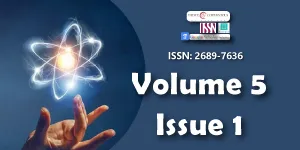Children explore to understand the physical world Research and practice in Early Childhood Education
Main Article Content
Abstract
All children are inquisitive and begin to make sense of the physical and natural world around them from the time they are born. Children use their senses to explore the surrounding environment. Early Childhood Centres (ECE) in New Zealand provide care and learning opportunities for children under the age of 5-years. Te Whāriki, our mandated curriculum guides teachers. In an exploratory case study, we investigated the science learning experiences provided by an ECE teacher and the children’s learning that ensued. The data were collected through case study teacher interviews, mentor notes, and 160 learning stories written by the teacher during the research over two years. We found that a teacher with little background in science was able to provide rich science learning experiences for the children. The teacher’s willingness to provide everyday science exploration opportunities and ask questions helped children to develop basic physics concepts. Current research suggests that science is often not taught due to the lack of teacher confidence to teach science because they are generalists and believe they do not have the requisite knowledge or training. Our findings have implications for science teaching and learning in early childhood and primary schools.
Downloads
Article Details
Copyright (c) 2022 Moeed A, et al.

This work is licensed under a Creative Commons Attribution 4.0 International License.
Licensing and protecting the author rights is the central aim and core of the publishing business. Peertechz dedicates itself in making it easier for people to share and build upon the work of others while maintaining consistency with the rules of copyright. Peertechz licensing terms are formulated to facilitate reuse of the manuscripts published in journals to take maximum advantage of Open Access publication and for the purpose of disseminating knowledge.
We support 'libre' open access, which defines Open Access in true terms as free of charge online access along with usage rights. The usage rights are granted through the use of specific Creative Commons license.
Peertechz accomplice with- [CC BY 4.0]
Explanation
'CC' stands for Creative Commons license. 'BY' symbolizes that users have provided attribution to the creator that the published manuscripts can be used or shared. This license allows for redistribution, commercial and non-commercial, as long as it is passed along unchanged and in whole, with credit to the author.
Please take in notification that Creative Commons user licenses are non-revocable. We recommend authors to check if their funding body requires a specific license.
With this license, the authors are allowed that after publishing with Peertechz, they can share their research by posting a free draft copy of their article to any repository or website.
'CC BY' license observance:
|
License Name |
Permission to read and download |
Permission to display in a repository |
Permission to translate |
Commercial uses of manuscript |
|
CC BY 4.0 |
Yes |
Yes |
Yes |
Yes |
The authors please note that Creative Commons license is focused on making creative works available for discovery and reuse. Creative Commons licenses provide an alternative to standard copyrights, allowing authors to specify ways that their works can be used without having to grant permission for each individual request. Others who want to reserve all of their rights under copyright law should not use CC licenses.
Rovelli C, Physics needs philosophy. Philosophy needs physics. Foundations of Physics, (2018);48(5), 481-491.
Freeman S, Opening Doors. Guiding teachers to intentionally facilitate science for young children (Doctoral dissertation, Open Access Victoria University of Wellington| Te Herenga Waka) (2021).
Ministry of Education, Te wh?riki: He wh?riki m?tauranga m? ng? mokopuna o Aotearoa: Early childhood curriculum, (2017); Retrieved from https://education.govt.nz/assets/Documents/Early-Childhood/ELS-Te-Whariki-Early-Childhood-CurriculumENG-Web.pdf
Carr M & Lee W, Learning stories: Constructing learner identities in early education. Sage (2012).
Anderson D, The nature and influence of teacher beliefs and knowledge on the science teaching practice of three generalist New Zealand primary teachers. Research in Science Education, (2015); 45(3), 395-423.
Shulman LS, Knowledge and teaching: foundations of the new reform. Harvard Educational Review, (1987); 57, 1-22.
Mansour N, Consistencies and inconsistencies between science teachers' beliefs and practices. International Journal of Science Education, (2013); 35(7), 1230-1275.
Pajares M, Teachers' beliefs and educational research: cleaning up a messy construct. Review of Educational Research, (1992); 62(3), 307-332.
Moeed A & Anderson D, Learning through school science investigation: Teachers putting research into practice. Springer (2018)
Thomas DR, A general inductive approach for analyzing qualitative evaluation data. American Journal of Evaluation (2006); 27(2): 237-246.
Gilgun, J.F. (2004). Deductive qualitative analysis and family theory-building. In: Bengston V, Dillworth Anderson P, Allen PK, et al. (eds) Sourcebook of Family Theory and Research. Thousand Oaks, CA: Sage, pp. 83–84.
Gilgun JF. Qualitative research and family psychology. J Fam Psychol. 2005 Mar;19(1):40-50. doi: 10.1037/0893-3200.19.1.40. PMID: 15796651.
Rickey D & Stacey AM, Investigating the effectiveness of a predict-explain-observe-explain-based teaching activity on students' understanding of condensation. Instruction and Science Journal, (2015); 40(5), 47-67.
Abrahams I & Millar R, Does practical work really work? A study of the effectiveness of practical work as a teaching and learning method in school science. International journal of science education, (2008); 30(14), 1945-1969.
Abrahams I, Minds-on practical work for effective science learning. In Science education (2017); (pp. 403-413). Brill Sense.
Hodson D, Learning science, learning about science, doing science: Different goals demand different learning methods. International Journal of Science Education, (2014); 36(15), 2534-2553.
Osborne J, Practical Work in Science: Misunderstood and Badly Used? School Science Review, (2015); 96(357), 16-24.
Bull A, Making the most of science learning opportunities in the primary school. Set: Research Information for Teachers, (2012); (1), 26-28.
Ministry of Education, Te Wh?riki: He wh?riki m?tauranga m? ng? mokopuna o Aotearoa. Early childhood curriculum. Wellington Learning Media (1996).
Moeed A & Anderson D, Learning through school science investigation: Teachers putting research into practice. Springer (2018).

